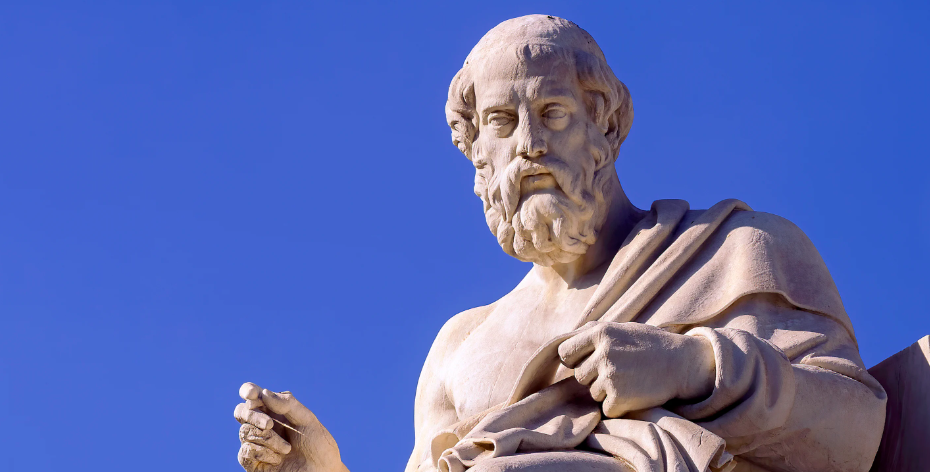Do you believe you have a soul?
How do you know? For example, is it because you …
- Experience or yearn for feelings such as love, justice, beauty, and goodness?
- Have a conscience which makes you feel guilty when you do something wrong?
- Feel that there must be an afterlife—heaven—where people go when they die?
- Believe in God and the Bible and therefore know for sure that you have a soul?
“Knowledge of the soul is the only universal truth and the only wisdom.” (Plato)
Exploring Our Soul
Most people believe they have a soul but may reach that conclusion for different reasons. Marcelo Gleiser, theoretical physicist and author, is an agnostic who cites scientific rationale for the soul:
“Consider, then, the modern soul as the unique neuronal-synaptic signature integrating brain and body through a complex electrochemical flow of neurotransmitters.” (Marcelo Gleiser)
On the other hand, there are many millions of people who are convinced they have a soul because of their faith, and they feel that the soul is critical to the essence of what life is about.
“Every human being is a living soul with a conscience (described as the light of the soul).” (Billy Graham)
There were four reasons cited above for believing that we have a soul, and all of them are valid. Our soul does allow us to experience transcendental feelings, detect the promptings of our conscience, and believe in heaven.
But those first three reasons alone are incomplete.
Because our soul is given to us by God when he creates us, and it is what makes us alive. It is also what we give back to God when we declare our faith, and it connects us to him. In addition, the soul is where our conscience resides, and it is how we express God through the choices we make.
“You will seek the Lord your God and you will find him, if you search after him with all your heart and with all your soul.” (Deuteronomy 4:29)
Discovering My Soul
I was a pretty good person in many ways when I was a young adult. But when I look back on those times, I can see that I wasn’t really in touch with my soul.
Externally, everything seemed to be going well. I was successful at work and making good money, and I enjoyed having fun and adventures with my friends. But I didn’t know what I didn’t know: my thinking was temporal rather than deep or spiritual, I ignored my conscience on a regular basis, and I thought mostly about me and now rather than God and forever.
In my late thirties, I sensed something was missing and felt led to investigate the concept of God. Because of how I’m wired, I chose an intellectual path toward searching for the truth.
Over time, by studying a number of disciplines, I became convinced that God was real and was the truth I had been searching for. I discovered—learned, discerned, knew—that he had created me in his image, and that I had a soul, something God esteemed as being of great value to him.
Understanding all of that changed everything in my life.
Twenty-five years later, I’m still learning and growing. But my interest in the soul, as well as with our heart, our mind, and our strength, are different and deeper now. Because I want to help people learn how to put them to good use to live life better.
Before we move on, I need to be real about something that is very important. I want my writing to be attractive and useful to as many people as possible, but I am also compelled to state the truth.
There is one and only one God—the God of the Bible who sent his son Jesus Christ to live and die for us, and he loves us. There are not multiple gods. It is pride rather than logic that leads some of us to feel we can invent a god of our own choosing. And it is arrogance to believe that we decide what the Creator of the universe is like, or whether he exists or not. Because God is God, not us.
If you don’t believe in him or want to know more, I hope and pray that you will decide to search for the truth yourself. I believe that if you sincerely seek God with an open mind, you will find him.
I say all this because I care about your well-being, even if we have never met. I mean that, and if I can help you along that journey, let me know, because I’ve been where you are.
Using Our Soul as a Compass
There is a lot of good news that comes along with our faith in God. One useful benefit is that we receive access to a supernatural force that can help guide us through life.
God always knows the right way for us to get to where we need to go. We can trust that his plans will ultimately provide what is best for us in the long run.
“For I know the plans I have for you,” declares the Lord, “plans to prosper you and not to harm you, plans to give you hope and a future.” (Jeremiah 29:11)
Our job is to discern the direction God wants us to go. Which is where our soul comes in, because it connects us to God and serves as a compass to direct us along our life journey.
To use the compass accurately, we must be open to God’s leading and willing to take steps in that direction. This means we agree to surrender our will to God’s will and loosen our grip on control.
If we do, we will get guidance along the way. It may not be as clear as we would like much of the time. But if we use our compass as we move along, we can make progress one step at a time.
“The heart of man plans his way, but the Lord establishes his steps.” (Proverbs 16:9)
Discerning What We Control
We can use our soul as a compass by calling on our faith to discern what we do and do not control.
Many of us have a deep infatuation—addiction—to control that permeates much of our lives. This compulsion leads to stress when we don’t get what we want and pride when we do. Hopefully, somewhere along our journey, we begin to understand that control is largely an illusion.
“Control has appeal but is illusory. It is probably not even possible. Life has too many variables and imponderables. Circumstances and events make control a fantasy. Indeed, if you ask people, “What do you really control?” many say quickly, “Nothing.” They are wrong. There is one thing we can control: our choices.” (Linda Hawes-Clever)
We must learn to recognize what we do and do not control. That means coming to understand that we do NOT control other people, circumstances, or outcomes. But we DO control the thoughts we encourage and the choices we make. In other words, we control our next right steps.
But how do we determine when to step back from things we do not control and take action on those we do? In 1951, an American theologian named Reinhold Niebuhr gave us a great tool to do just that, and it’s called the Serenity Prayer:
God, grant me the serenity to accept the things I cannot change, courage to change the things I can, and wisdom to know the difference.
The Serenity Prayer serves as a process for using our soul as a compass. It provides a simple series of steps as we call on our faith to discern what we do and do not control. We ask God to help us:
1. Accept what we can’t change with serenity.
2. Change the things we can with courage.
3. Find wisdom to know the difference.
Sometimes, the path we are guided along brings us welcome peace when we experience the blessed release of letting go of things we cannot change. Other times, we find strength and encouragement to take on challenges that we can do something about.
To learn more about how to use the Serenity Prayer to make good choices, read the Next Right Steps blog article on “Serenity to Accept, Courage to Change.”
Using our compass begins as a choice to seek God’s direction. It leads to serenity and courage, which strengthen our faith even more, as we take next right steps and let go of the outcome.
Practically, our soul houses our conscience which helps us develop a moral sense of right and wrong. Supernaturally, our soul also allows us to better hear the voice of God.
Question: What is a situation you are facing now where you need serenity or courage?
Next Right Step: Memorize the Serenity Prayer and begin to use it as you make choices.



